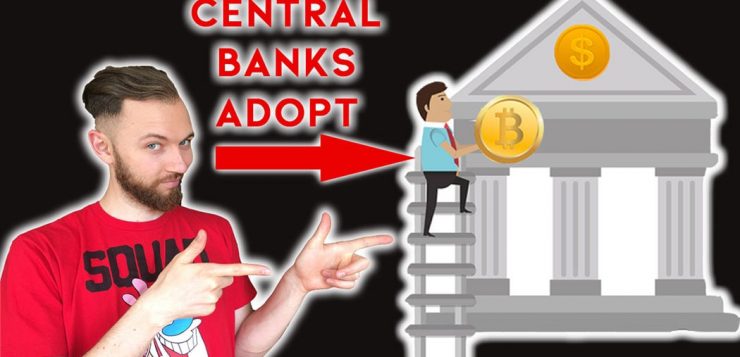Bitcoin adoption is often discussed through looking into its benefits as an actual currency that can be accepted by mainstream merchants and vendors. The world of Bitcoin adoption wants wages to be paid in Bitcoin, wants groceries purchased in Bitcoin and bills to be settled in Bitcoin. Bitcoin adoption, will see Bitcoin enter the mainstream, that’s for sure. There is however one thing that isn’t discussed often enough. That is – how can Bitcoin benefit the central banks?
Bitcoin adoption will no doubt see Bitcoin become an asset that is stored at, and used at national banks. Because of this, the central banks that rule over these banks will need to integrate Bitcoin based blockchain technology and therefore we can only expect that in the future, Bitcoin will be used to help digitise the central banks too.
We need to explore which areas within the central and national banks that Bitcoin can benefit. Ultimately, Bitcoin will only achieve adoption if the banks can make use of it, otherwise, what would be the point in changing the current financial system, it works already right? For the banks at least…
Firstly, transactions. Bitcoin can help to improve how transactions are carried out within central and national banks. Blockchain technology can help make transactions quicker and cheaper, meaning banks can make more money out of them, without reflecting an increased price back on their customers. Transactions can be made more efficient, meaning banks can make decisions quicker and give the entire money transfer industry a complete overhaul.
Next, billing. Sending invoices and bills from banks, for example credit bills can be a time consuming process. Bitcoin can speed this up. By sending a credit bill to a customer, along with a Bitcoin wallet address, the bill can be settled almost instantly. With current technology, many bills are still sent out via the post and ‘snail mail’. This can take around 3 days to be sent to the customer. Using the blockchain makes sending these notifications quicker and more secure. Moreover when a customer receives a bill, they then need to actually pay it, a process that too can take a number of days. The blockchain and Bitcoin specifically can shrink this payment time too.
Central and national banks can benefit from a shortened time frame for issuing and settling bills.
Finally, mobility. Bitcoin within a central banking system can improve the mobility of the whole project. It gives central banks a more international reach, allowing them to make and facilitate payments across borders. Transparency means that taxation can also be more mobile and exist on a network that can be shared by both the banks and local customs.
These are just a few principles of Bitcoin and blockchain technology that hosts intrinsic benefits for the banks. Once the banks realise this, perhaps adoption will be the next step. That’s what we all hope to happen at least.







